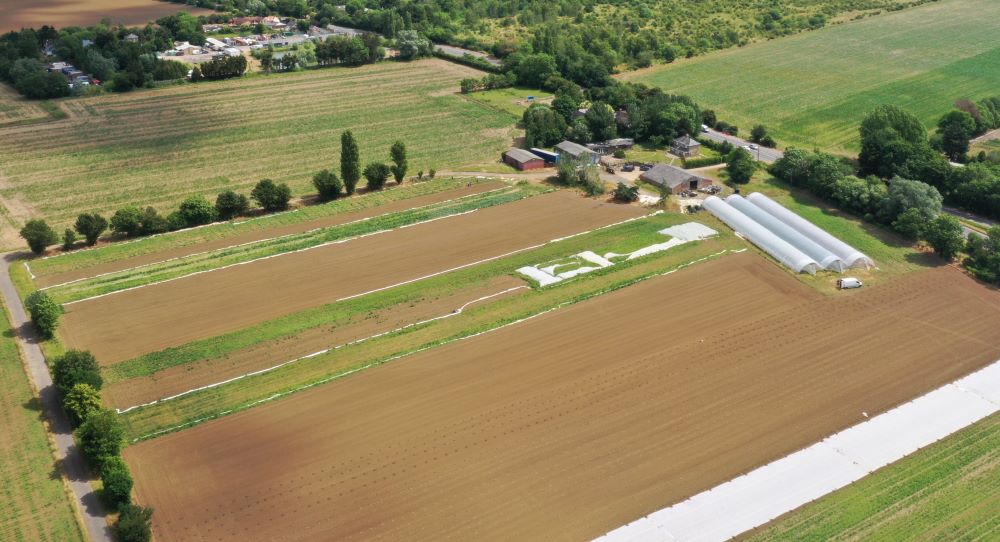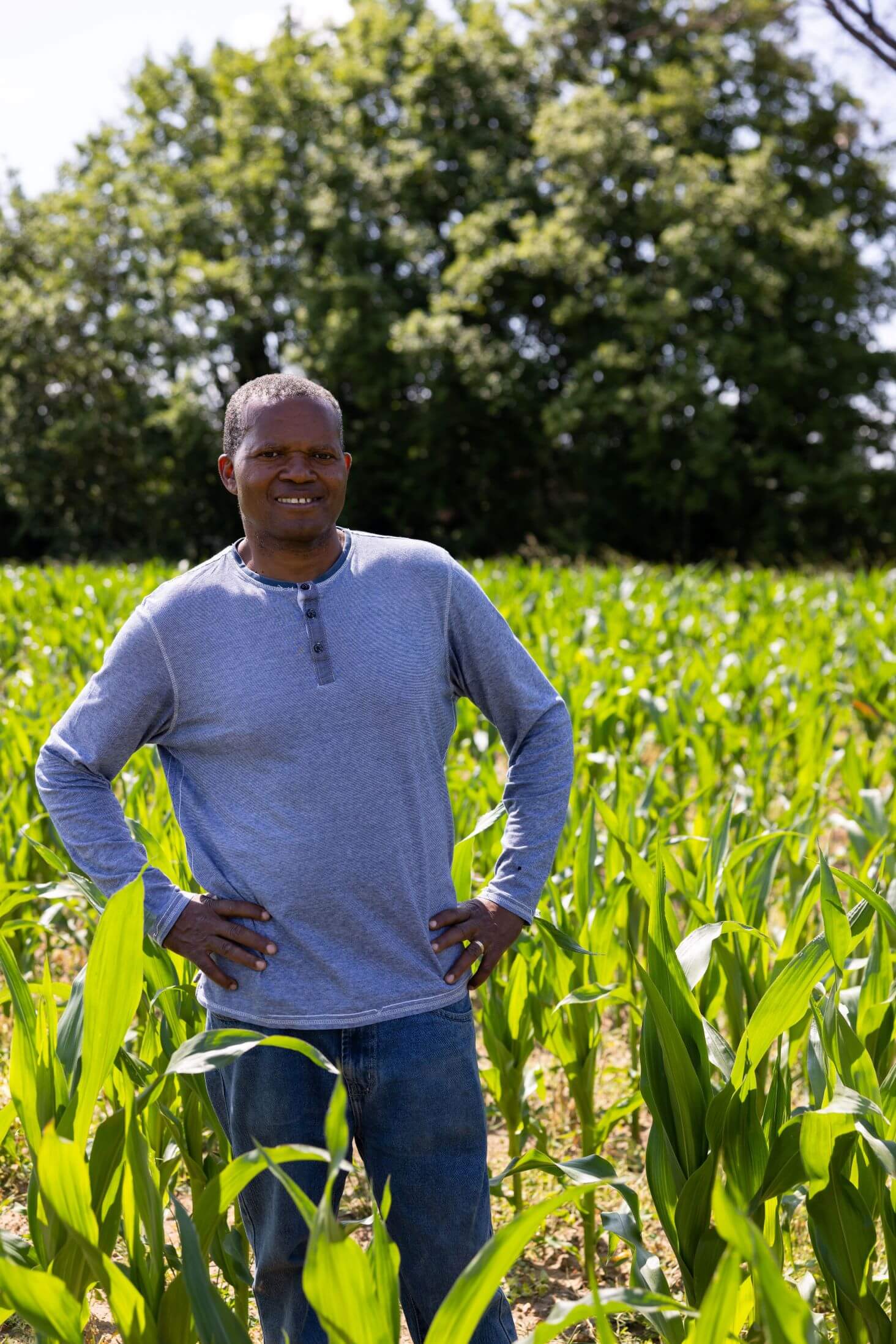Entering the UK farming market – key insights and learnings from David Mwanaka
Zimbabwean David Mwanaka shares his inspirational journey up the UK farming ladder, which saw a career switch from journalism to farming.
5 minutes to read
I will never forget where we were when we heard the news,” Brenda Mwanaka tells me. “It was, oh my goodness, we’ve got a farm at last.”
Brenda and her husband David, both originally from Zimbabwe in southern Africa, are proudly showing me around the farm in question, a 365-acre arable unit at Landbeach, part of Cambridgeshire County Council’s 33,000-acre agricultural estate, which is home to 160 tenanted businesses.
They finally found a permanent base for their food and farming business after searching for 20 years. They moved in earlier this year on a 10-year farm business tenancy.
Mwanakas’ story is both inspiring and concerning. Inspiring because through sheer determination they have beaten the odds, but concerning because those odds are so heavily stacked against new entrants – entrepreneurial new entrants that the UK’s farming sector desperately needs to become more productive, more diverse and better able to adapt to the many challenges it currently faces.

The Mwanaka’s farm, a 365-acre arable unit at Landbeach, part of Cambridgeshire County Council’s 33,000-acre agricultural estate
Their journey started in 1991 when David found life as a journalist in Robert Mugabe’s Zimbabwe was becoming too uncomfortable. “I just had to get out. I didn’t know where to go but I had a brother in the UK so ended up here.”
Becoming a UK farmer
Was becoming a farmer at the opposite end of the world on his mind back then, I wonder. “Absolutely not,” he laughs. This big idea was similar to other businesses started by people away from home. “I don’t come from a farming family, but when I found I couldn’t find white maize to buy anywhere here I thought maybe I could grow it myself,” explains David.
Although it’s impossible in the field to tell white maize, which is either traditionally milled into a polenta-like flour or roasted whole, apart from the yellow maize usually grown in the UK, agronomically it is quite different with a shorter growing season.
“It took six years of trial and error to get it right,” says David. “I phoned up the Maize Growers Association to ask for advice, but they said it couldn’t be done.”
Meanwhile, the Mwanakas were struggling to find anywhere to grow the white maize. Ever resourceful, a small ad David placed in a national newspaper led to a short article in The Guardian that produced an offer of nine acres of land near Enfield owned by a charitable trust.
“I think people just wanted to find out more about this farmer with the strange name who wanted to grow a strange crop,” he recounts. “After a while the land was sold to Tottenham Hotspur for a new training ground so we had to keep moving from small plot to small plot, which were often then sold for development.”
All the time David and Brenda were applying for county council tenancies but, as they quickly discovered, demand far outstrips supply.
Watch David Mwanaka's journey below:
Agricultural finance
Finance was also an issue. Lenders, says David, weren’t keen to provide funds to a business growing crops they’d never heard of, and farming grants didn’t seem targeted at small-scale growers like him.
“I’ve never taken a penny from the government and my own bank hasn’t helped much either. If you are a farmer growing wheat or barley the banks are comfortable, but they aren’t so happy to take a risk on something they don’t understand.”
Marketing his white maize which, unlike corn on the cob, needs to be eaten on the day of harvest if not dried and milled, was another hurdle to overcome for David.
“I was so excited when I had my first crop, I put the maize into the back of my car and drove to London where there was a Congolese wedding going on and assumed everybody would want to buy it. I didn’t sell much,” he says ruefully.
Through lots of hard work, including letting shops only pay for any maize they actually sold, David eventually created a marketing network that has grown to include two shops of his own and some surprising customers.
“At one time I was growing white sweet corn for Harrods and Sainsbury’s. I think it’s a lot harder now – supermarket buyers don’t return your calls – but 10 years ago you could phone up and if you had something new they might try it.”
Despite adding more exotic crops from southern Africa and other parts of the world to his repertoire and becoming a successful food entrepreneur in his own right, the lack of a farm still rankled.
But all that changed last year when their persistence paid off and Brenda and David beat off competition from 40 other applicants vying for just seven Cambridgeshire County Council tenancies.
“We applied for the two biggest farms and got one of them, so we were very happy,” says Brenda. “If I ever write a book it will be called ‘We got a farm’.”

David Mwanaka pictured with his white maize crops at Landbeach
Food production and delivery
When I ask what part of their application she thinks appealed to the council, Brenda says it was the whole package. “We have a unique project, we are a growing business with a proven track record and we want to farm sustainably. We use hardly any chemicals and by growing crops that are usually shipped to the UK from different continents we are saving a lot of food miles.”
Although they only moved in this January, the farm’s fields and several large polytunnels that David has built are already bursting with exotic crops including sweet sorghum, melons, gourds, pumpkins, kale and, of course, plenty of the crop that started it all, white maize.
“We are growing about 15 different crops this year, but I always want to try new things,” says David. “Climate change is actually helping us as it is making it easier to grow things that you find in places like Africa.”
And what does the future hold, I ask. “More land and more different crops,” is the answer from the man who just won’t take no for an answer and who has shown his doubters that with enough persistence you can achieve your dreams, even when the deck isn’t stacked in your favour.
This interview is from The Rural Report 2023/24, which offers rural property owners and businesses the latest news, guidance, advice and key insights in rural markets.
Download The Rural Report 2023/24